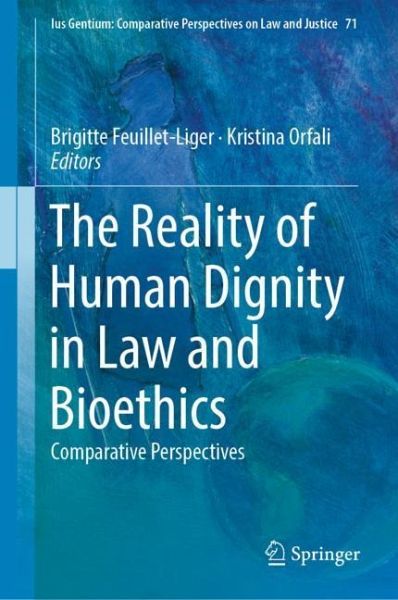
The Reality of Human Dignity in Law and Bioethics
Comparative Perspectives
Herausgegeben: Feuillet-Liger, Brigitte; Orfali, Kristina

PAYBACK Punkte
61 °P sammeln!
Adopting an interdisciplinary perspective, this volume explores the reality of the principle of human dignity - a core value which is increasingly invoked in our societies and legal systems. This book provides a systematic overview of the legal and philosophical concept in sixteen countries representing different cultural and religious contexts and examines in particular its use in a developing case law (including of the European Court of Human Rights and of the Inter-American Court of Human Rights). Whilst omnipresent in the context of bioethics, this book reveals its wider use in healthcare ...
Adopting an interdisciplinary perspective, this volume explores the reality of the principle of human dignity - a core value which is increasingly invoked in our societies and legal systems. This book provides a systematic overview of the legal and philosophical concept in sixteen countries representing different cultural and religious contexts and examines in particular its use in a developing case law (including of the European Court of Human Rights and of the Inter-American Court of Human Rights). Whilst omnipresent in the context of bioethics, this book reveals its wider use in healthcare more generally, treatment of prisoners, education, employment, and matters of life and death in many countries.
In this unique comparative work, contributing authors share a multidisciplinary analysis of the use (and potential misuse) of the principle of dignity in Europe, Africa, South and North America and Asia. By revealing the ambivalence of human dignity in a wide range of cultures and contexts and through the evolving reality of case law, this book is a valuable resource for students, scholars and professionals working in bioethics, medicine, social sciences and law. Ultimately, it will make all those who invoke the principle of human dignity more aware of its multi-layered character and force us all to reflect on its ability to further social justice within our societies.
In this unique comparative work, contributing authors share a multidisciplinary analysis of the use (and potential misuse) of the principle of dignity in Europe, Africa, South and North America and Asia. By revealing the ambivalence of human dignity in a wide range of cultures and contexts and through the evolving reality of case law, this book is a valuable resource for students, scholars and professionals working in bioethics, medicine, social sciences and law. Ultimately, it will make all those who invoke the principle of human dignity more aware of its multi-layered character and force us all to reflect on its ability to further social justice within our societies.














